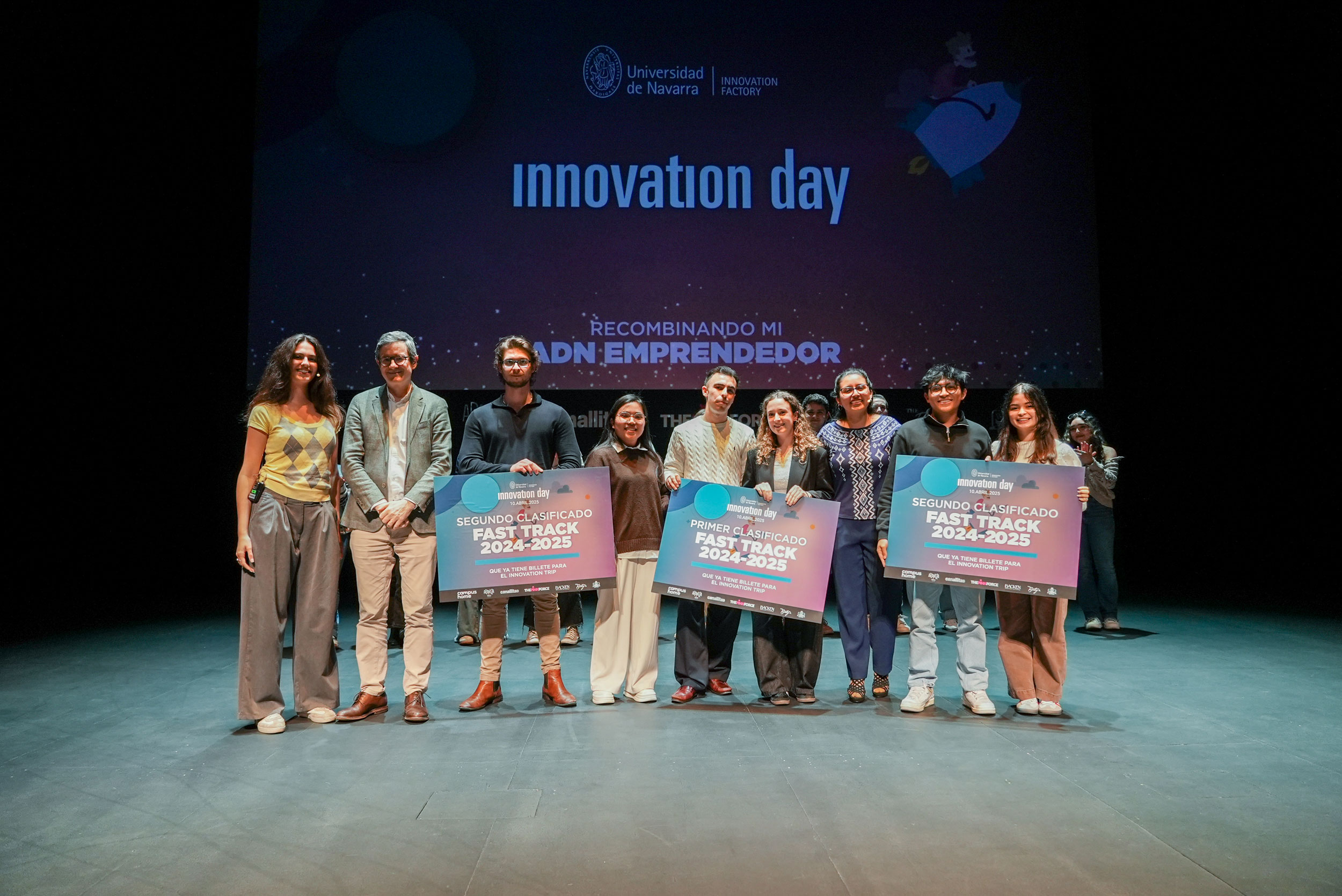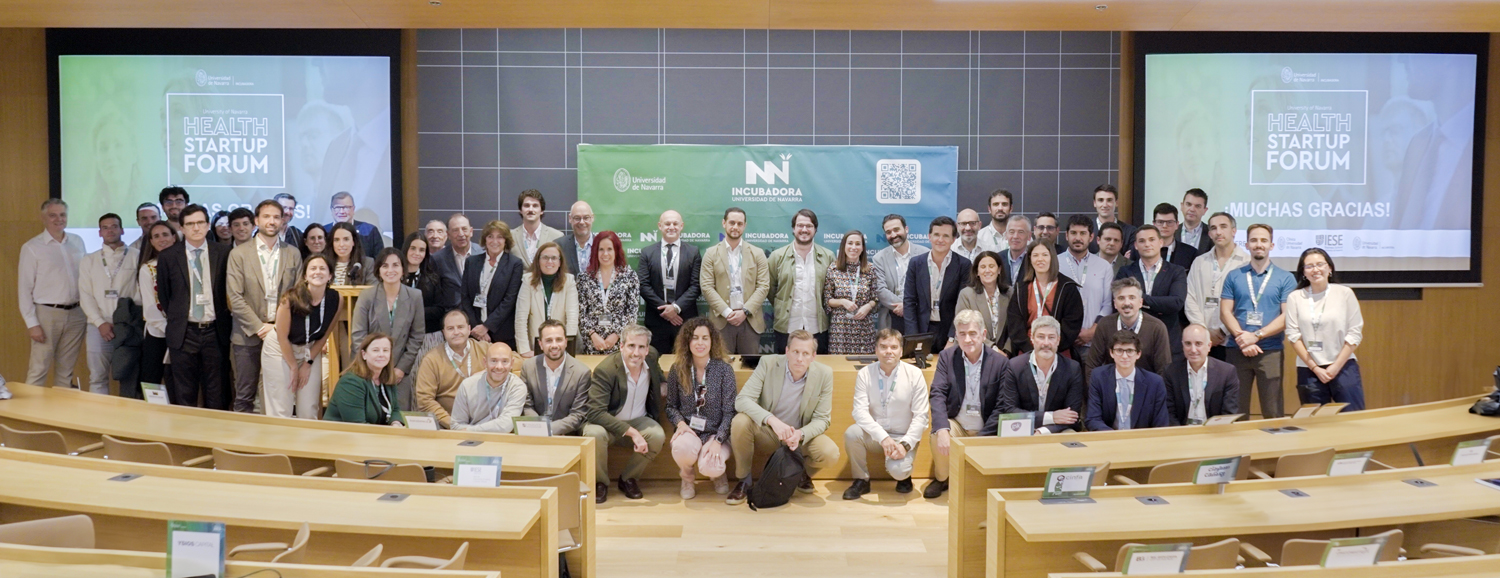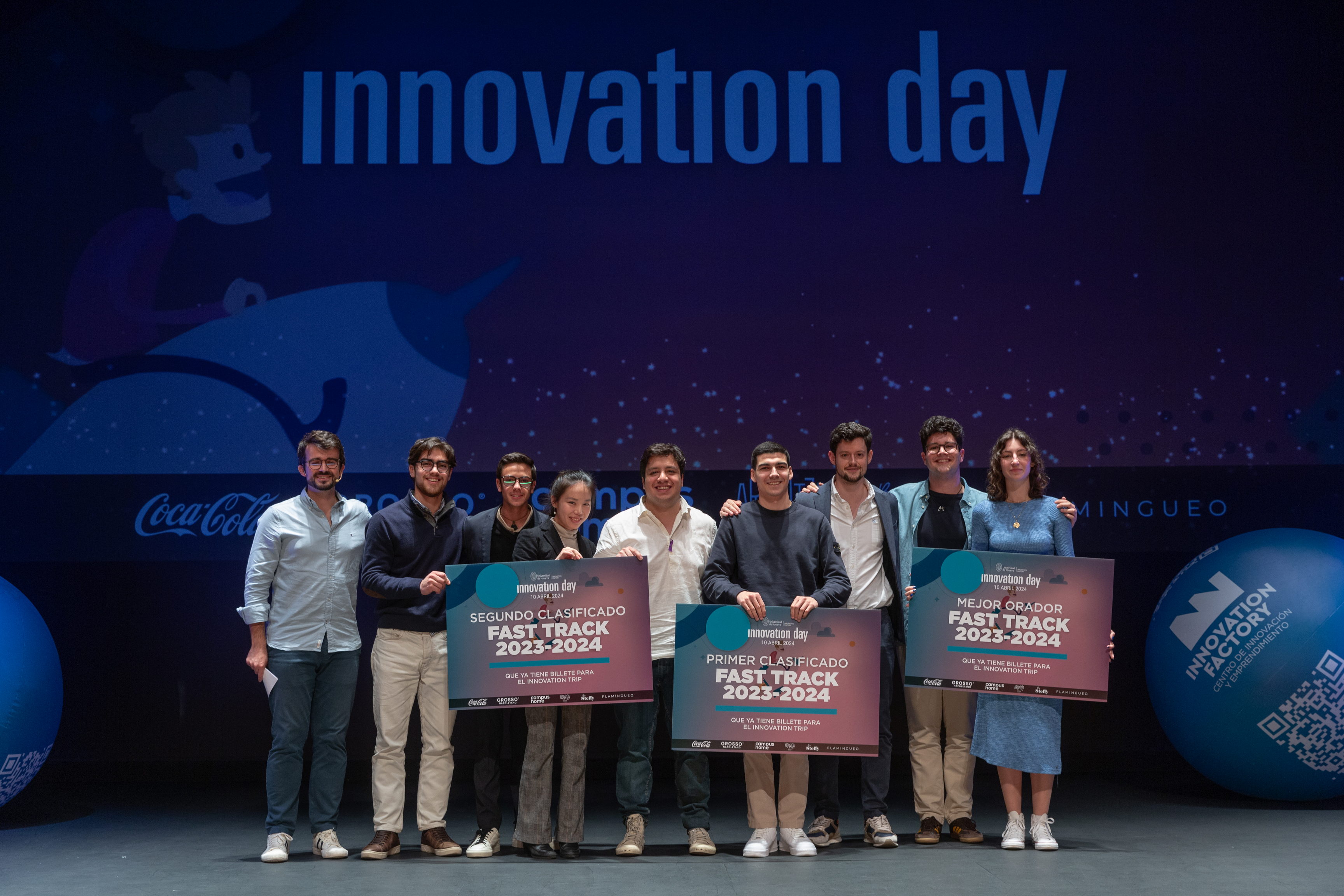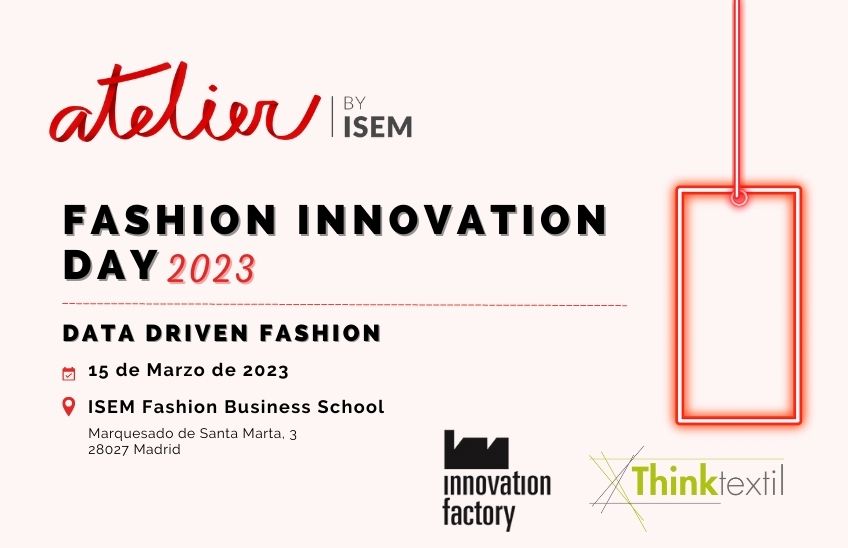"When we talk about digital transformation what is important is the transformation, not the digital."
Atelier is the Spanish FashTech innovation forum of ISEM Fashion Business School. Last Wednesday it held its Fashion Innovation Day, which addressed the topic of Fashion Data Driven. In the afternoon, a selection of startups that are revolutionizing the fashion industry -from Spain, Israel, Dubai and Cyprus- presented their projects. The Catalan Dawa was the winner of the accredited specialization for the most innovative startup of Atelier 2023.
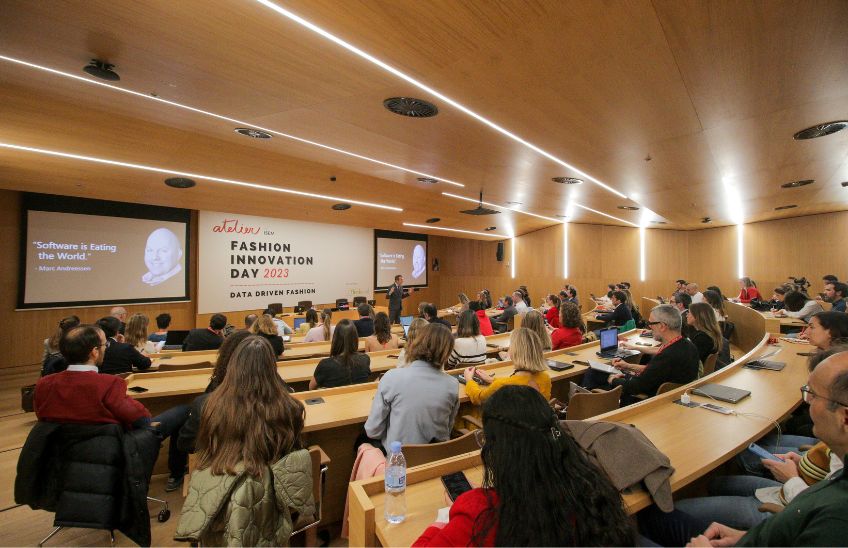
15 | 03 | 2023
Last Wednesday more than a hundred innovation managers, startups and entrepreneurs from the fashion world met quotation in Madrid on the occasion of Atelier's Fashion Innovation Day. For six years, ISEM, the business school specializing in fashion at the University of Navarra, has been promoting this forum, which once again proved to be an essential quotation of training and networking open to the entire retail sector.
Morning of training and networking
The Fashion Innovation Day 2023, sponsored by business logistics ThinkTextil, has addressed the topic of Fashion Data Driven (Fashion Driven by data). After some words of welcome from Teresa Sádaba, dean of ISEM, Javier Zamora was in charge of opening the workshop.
The IESE professor outlined the general framework of an environment in which the boundaries between the physical and digital worlds are becoming increasingly blurred. "Before, technology was the backend, but now all companies are, to some extent, software companies that are custodians of data, with the responsibility that entails."
This increase in digital density was reflected by Zamora in a simple example: In 1985, an American made a average of five visits to the dealership before buying a car. By the year 2000, the average issue visit was already down to one, basically to fill out paperwork because, thanks to the Internet, the buyer almost knows the car better than the seller. In 2010, with the emergence of carsharing many regular drivers prefer not to have their own vehicle and, as of 2015, cars are already computers on wheels.
For companies, this evolution represents a major challenge challenge. " When we talk about digital transformation, the important thing is transformation: how to make an organization adaptable to changing contexts," said the professor. To achieve this, Javier Zamora presented six metacompetencies applicable to companies in any sector:
- Outside in thinking or consumer centric thinking. The most important thing is to understand the customer and what their motivation is when they buy your product.
- Bimodality: Companies must operate at the same time in the current business model , which is the one that makes them money, but innovating and learning, because they can quickly become obsolete.
- Agile execution: Traditional organizations work with the Taylor Principle, in which, in order to achieve greater efficiency, each functional area is dedicated to its own thing. Now, as the environment is very changeable, working in this way means that when the product goes to market it is already obsolete. Therefore, organizations need to have transversal KPI's and transversal teams, composed of people from different Departments, to use agile methodologies.
- Digital transformation is, in a way, managing paradoxes: we want to win and learn, we want to not fail or fail fast.
- Partner Ecosystem: In the 21st century, it is necessary to work with partners from different sectors in order to go further together.
- Data Driven Organizations: The famous data scientists ("scientists of data") and traditional managers speak different languages, so more and more organizations need Business translators, able to put agreement and coordinate both parties towards the same goals and ensure that all employees are, to some extent, autonomous in using the data of the business.
Then, in a more technical session, Pedro Larrañaga, Full Professor of Computer Science and Artificial Intelligence at the Polytechnic University of Madrid, presented the keys to artificial intelligence in the fashion industry.
The morning of training closed with the CEO of the startup Jogotech, Gonzalo Martín, who explained the concept of hybrid online and offline measurement for fashion brands, technically called "Phygital". "In a context where you can already buy directly on tiktok and whatsapp, we are hybrid consumers, he stated. We know through the internet, but then we go to the store to see the product live and, finally, we buy it, sometimes in the physical store and sometimes in e-commerce. The challenge for brands is to get to know what the process is for each customer, from the moment they see the product until they buy it, in order to know where they need to invest more and improve their profitability.
The most innovative startups serving the retail sector
In addition to the sessions at training, Atelier has been helping fashion companies in Spain in their innovation processes for more than six years, putting them on contact with startups that can change the value chain. In the last six years, more than 130 startups have presented their projects in this forum.
In the afternoon of Fashion Innovation Day, a selection of startups that are revolutionizing the fashion industry -from Spain, Israel, Dubai and Cyprus- presented their projects to a select group of investors and advocates of this edition of Atelier: Aristocrazy, AWWG, Bimba & Lola, Boboli, Camper, El Corte Inglés, El Ganso, Mayoral, Multiópticas, T2T Solutions, Tendam and Ternua.
All of them awarded the accredited specialization to the Most Innovative Startup of the 2023 edition, which went to Dawa, a Catalan business specialized in reverse logistics. Thanks to this accredited specialization, the startup will enjoy two full scholarships to ISEM's innovation program in New York, Fashion Business IQ.


